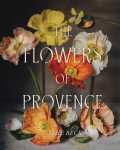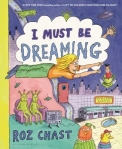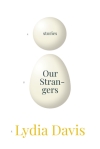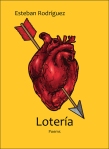I’m catching up with reviews of the many October releases I read, including these four sent by publishers…
- a genre-bending, Technicolor graphic novel in the form of short comics
- a book-addict’s memoir of an ambitious Covid-times tour of Britain’s bookshops
- an understated novel about queer men of colour coping with death and mental illness
- and a quirky contemporary poetry collection I read in one sitting.
Followed by a bonus list of October books I reviewed for Shelf Awareness, similarly varied in genre: autofiction, flash fiction, horror-tinged historical fiction, graphic memoirs and more.
Monica by Daniel Clowes
 Daniel Clowes is a respected American graphic novelist best known for Ghost World, which was adapted into a 2001 film starring Scarlett Johansson. I’m not sure what I was expecting of Monica. Perhaps something closer to a quiet life story like Alison by Lizzy Stewart? In any case, not this jumble of 1970s nostalgia and supernatural horror. The book is in nine loosely connected stories that make the head spin with their genre and tonal shifts; one thing that stays constant is Clowes’s drawing style, which combines vibrant, campy colour with exaggerated faces and blunt haircuts.
Daniel Clowes is a respected American graphic novelist best known for Ghost World, which was adapted into a 2001 film starring Scarlett Johansson. I’m not sure what I was expecting of Monica. Perhaps something closer to a quiet life story like Alison by Lizzy Stewart? In any case, not this jumble of 1970s nostalgia and supernatural horror. The book is in nine loosely connected stories that make the head spin with their genre and tonal shifts; one thing that stays constant is Clowes’s drawing style, which combines vibrant, campy colour with exaggerated faces and blunt haircuts.
At first it seems there will be a straightforward linear narrative: the prologue, “Foxhole,” has two soldiers dreaming of what life will be like Vietnam, with the one looking forward to a simple life with his fiancée Penny. “Pretty Penny” shatters those illusions as we see that Penny has fully embraced sexual liberation while he’s been away. She rejects her mother and, in a countercultural decision, keeps the baby when she gets pregnant. Young Monica has a sequence of stepfather figures before Penny dumps her with her parents and goes AWOL.
To an extent, the rest of the book is about Monica’s search for her parents. We see her as a young college student communicating with her dead grandfather via a radio, as a successful entrepreneur selling candles, and as an older woman caretaking for a California Airbnb. But in between there are bizarre sci-fi/folk horror interludes – “The Glow Infernal” and “The Incident” – about unconnected characters, and Monica’s involvement with a cult inevitably turns strange. I couldn’t get past the distasteful story lines or grotesque style. Mostly, I wasn’t convinced that Clowes liked or cared about any of his own characters, so why should I? (This might be Tom Cox’s dream book, but not mine.) I suppose I might try a classic work by Clowes one day, but only if I can be assured that it has more plot and heart.
With thanks to Jonathan Cape (Penguin) for the free copy for review.
Bibliomaniac: An Obsessive’s Tour of the Bookshops of Britain by Robin Ince
Do you know anyone who can buy just one book? Do you know anyone who leaves a bookshop only with what they walked in to buy?
I understand that Robin Ince is a radio personality and comedian who, though holding no formal qualifications, often delivers presentations about science. He was meant to undertake a stadium tour with Professor Brian Cox in the autumn of 2021, but a Covid resurgence put paid to that. Not one for sitting around at home – he comes across as driven, antsy; positively allergic to boredom – he formulated Plan B: 100+ events, most of them in independent bookshops (the oddest venue was a Chinese restaurant; he was speaking to the Plymouth Humanists), over the course of two months, criss-crossing Britain and hitting many favourite places such as Hay-on-Wye, Hungerford (my local indie) and Wigtown. The topic of his previous book was curiosity, which gave him free rein to feature anything that interested him, so no two talks were the same and he incorporated lots of ad hoc book recommendations.
 Ince is not just a speaker at the bookshops but, invariably, a customer – as well as at just about every charity shop in a town. Even when he knows he’ll be carrying his purchases home in his luggage on the train, he can’t resist a browse. And while his shopping basket would look wildly different to mine (his go-to sections are science and philosophy, the occult, 1960s pop and alternative culture; alongside a wide but utterly unpredictable range of classic and contemporary fiction and antiquarian finds), I sensed a kindred spirit in so many lines:
Ince is not just a speaker at the bookshops but, invariably, a customer – as well as at just about every charity shop in a town. Even when he knows he’ll be carrying his purchases home in his luggage on the train, he can’t resist a browse. And while his shopping basket would look wildly different to mine (his go-to sections are science and philosophy, the occult, 1960s pop and alternative culture; alongside a wide but utterly unpredictable range of classic and contemporary fiction and antiquarian finds), I sensed a kindred spirit in so many lines:
“A bookshop with a proximity to an interesting graveyard is a fine combination.”
“I like charity bookshops, because I can delude myself into believing that I am committing an altruistic act by purchasing too many books. I am not satisfying my consumer lust – I am digging a well in Uganda.”
“This is one of the wonders of books: the delight of being a species that can chronicle and preserve. I pick up a book from a shelf, and someone who is no more than ash or bone can still change me.”
He’s also refreshingly open-minded, determined not to become a white male dinosaur: he once spent a wonderful year reading only women authors, and gratefully accepts the gift of a Black queer feminist work – at which he knows a younger version of himself would have scoffed. I took lots of notes on shops I hadn’t heard of, but also appreciated the witty asides on British ways and on the rigours and coincidences of the tour. If you liked White Spines, this will be right up your street, though to me this was universal where the Royle was too niche. And it didn’t matter a jot that I was previously unfamiliar with Ince as a public figure.
Bibliomaniac came out in paperback on 5 October. My thanks to Atlantic Books for the free copy for review.
Family Meal by Bryan Washington
After the verve of his linked short stories (Lot, which won the Dylan Thomas Prize) and the offbeat tenderness of his debut novel, Memorial, I couldn’t wait for Bryan Washington’s next book. While it’s set in the multicultural Houston of his first book and similarly peopled by young queer men of colour, Family Meal shares the more melancholy edge of Memorial with its focus on bereavement and the habits and relationships that help the characters to cope.
Cam has moved back to Houston from Los Angeles after the untimely death of his boyfriend Kai, who had a budding career as a translator and spent part of each year in Japan. Cam works in a failing gay bar, crashes with his boss and has mostly stopped eating. Although he still loves cooking Asian food for others, he rarely tastes it himself; his overpowering appetite now is for pills and sex, leading him to arrange as many as four hook-ups per day. Kai still appears and communicates to him. “Easier to spend time dwelling on death than it is to live, says Kai.” Is it to escape this spectre, or the memory of what happened to Kai, that Cam descends into his addictions? Meanwhile, his estranged friend TJ, with whom Cam grew up at TJ’s Korean American family’s bakery after the death of Cam’s parents, has his own history of loss and unhealthy relationships. But a connection with the bakery’s new nonbinary employee, Noel, seems like it might be different.
If you’ve read Washington before, you’ll know what to expect: no speech marks, obscenity-strewn dialogue, sexually explicit scenes that seem to be there for the sake of it (because sex is part of life, rather than because they particularly advance the plot). An issue I had here, like with Memorial, is that having multiple first-person narrators doesn’t add anything; Kai and TJ sound so much like Cam, who narrates roughly the first half, that it’s hard to tell their affectless accounts apart. Such interchangeable voices two books running suggests to me that Washington hasn’t yet managed to fully imagine himself outside of his own personality.

The novel has much to convey about found family, food as nurture, and how we try to fill the emptiness in our lives with things that aren’t good for us. However, it often delivers these messages through what wise secondary characters say, which struck me as unsubtle.
“You don’t have to do this alone, says TJ.”
(Kai:) “My mother would say, Cooking is care. The act is the care.”
“Love can be a lot of things though, says Noel. Right? It’s pleasure but it’s also washing the dishes and sorting medication and folding the laundry. It’s picking out what to eat for dinner three nights in a row, even if you don’t want to. And it’s knowing when to speak up, and when to stay quiet, and when, I think, to move on. But also when to fight for it.”
“Sometimes the best we can do is live for each other, she [Kai’s sister] says. It’s enough. Even if it seems like it isn’t.”
There’s no doubting how heartfelt this story is. It brought tears to my eyes at the beginning and end, but in between did not captivate me as much as I hoped. While intermittently poignant on the subject of bereavement, it is so mired in the characters’ unhealthy coping mechanisms that it becomes painful to read.
In my mind Washington and Brandon Taylor are in the same basket, though that may be reductive or unimaginative of me (young, gay Black authors from the American South who have published three books and tend to return to the same themes and settings). Before this year I would have said Taylor had the edge, but The Late Americans was so disappointingly similar to his previous work that Washington has taken the lead. I just hope that with his next work he challenges himself instead of coasting along in the groove he’s created thus far.
I wish I could get a copy of this into the hands of Sufjan Stevens…
With thanks to Atlantic Books for the free copy for review.
Fudge by Andrew Weatherhead
 I read this over a chilled-out coffee at the Globe bar in Hay-on-Wye (how perfect, then, to come across the lines “I know the secret of life / Is to read good books”). Weatherhead mostly charts the rhythms of everyday existence in pandemic-era New York City, especially through a haiku sequence (“The blind cat asleep / On my lap—and coffee / Just out of reach” – a situation familiar to any cat owner). His style is matter-of-fact and casually funny, juxtaposing random observations about hipster-ish experiences. From “Things the Photoshop Instructor Said and Did”: “Someone gasped when he increased the contrast / I feel like everyone here is named Taylor.”
I read this over a chilled-out coffee at the Globe bar in Hay-on-Wye (how perfect, then, to come across the lines “I know the secret of life / Is to read good books”). Weatherhead mostly charts the rhythms of everyday existence in pandemic-era New York City, especially through a haiku sequence (“The blind cat asleep / On my lap—and coffee / Just out of reach” – a situation familiar to any cat owner). His style is matter-of-fact and casually funny, juxtaposing random observations about hipster-ish experiences. From “Things the Photoshop Instructor Said and Did”: “Someone gasped when he increased the contrast / I feel like everyone here is named Taylor.”
The central piece, “Poem While on Hold with NBA League Pass Customer Support Nov. 17, 2018,” descends into the absurd, but his four hours lost on the phone are reclaimed through his musings on a sport he once played (“I had begun to find meaning in art and music / I was always too cerebral a player anyways … That feeling—of perfect grace and equanimity— / must be what we’re all searching for in this life”) and on life in general. This is poetry that doesn’t feel like poetry, if that makes sense. I have a hunch that it might appeal to readers of David Foster Wallace.
Published by Publishing Genius. With thanks to publicist Lori Hettler for the e-copy for review.
Reviewed for Shelf Awareness:
(Links to full text)
The Flowers of Provence by Jamie Beck (Gift books feature): A gorgeous book of photographs, perfect for gardeners, romantics, and armchair travelers. Her still lifes are as detailed and colorful as medieval paintings.
Edith Holler by Edward Carey (forthcoming): A dark fairy tale about a precocious girl confined to her family’s theatre in Norwich, England yet driven to reveal the truth behind her city’s child disappearances. Reminiscent of Dahl, Dickens, and Shakespeare at their goriest.
I Must Be Dreaming by Roz Chast: A laugh-out-loud-funny tour through her dream journal as well as a brief introduction to dream theory. Delightfully captures the randomness of dream topics and dialogues.
Tremor by Teju Cole: A kaleidoscopic work of autofiction that journeys between the US and Nigeria as it questions the ownership and meaning of Black art. The sophisticated structure is a highlight of this elegant study of art criticism, suffering, and subjectivity.
Our Strangers by Lydia Davis (Review and Q&A): In her ninth collection of mostly flash-length stories (a whopping 143 of them), an overarching theme is the mystery of human communication and connection. A real cornucopia of genres, structures, and voices. [Only available via Bookshop.org and independent bookstores.]
Lotería by Esteban Rodríguez: Lotería is a traditional Mexican game of chance. Each Spanish-language card is allotted a one-page poem in a creative, poignant recounting of his Mexican American family history.
Glass Half Empty by Rachael Smith: The British comics artist third graphic memoir is a refreshingly candid account of her recovery from alcoholism after her father’s death. In some panes, her adult self appears alongside her younger self, offering advice.
The Dead Peasant’s Handbook by Brian Turner: The final installment – after The Wild Delight of Wild Things and The Goodbye World Poem – in an intimate, autobiographical trilogy. Love is presented as the key to surviving bereavement and wartime trauma.








Bibliomaniac sounds fun!
LikeLiked by 2 people
I had a feeling that one would appeal to my readers!
LikeLiked by 1 person
Ince came and spoke in Ripon a year or so back. He was wonderfully engaging and lively and just chatted away – apparently unprepared but not at all worse for that. And he did indeed scour the charity shops – but not the new volumes in our indy bookshop that had arranged the evening.
LikeLiked by 2 people
I admire people who can speak off the cuff like that! I would need a written speech or at least detailed talking points on an index card.
LikeLiked by 1 person
Exactly. He had nothing. One thought led to another and it all worked just fine.
LikeLike
I like the sound of the Ince a lot (naturally)! Also, Edith Holler sounds pretty wonderful, I’ll keep an eye out for that. Re. Family Meal, Taylor and Washington are both authors whom I admire more than enjoy, and that sense of settling into a groove is possibly one reason why.
LikeLiked by 1 person
The Edward Carey was surprisingly bloody for a book narrated by a 12-year-old. It came out on Halloween and would be a good horror choice had RIP not already finished.
It is admirable how they each have a signature voice and have stuck to it … but branching out with the subject matter will be important.
LikeLike
I’m getting more and more into horror so definitely keen. (And I need to read some Carey; I’ve slept on him up til now.)
LikeLike
I definitely like the sound of Bibliomaniac. Sigh. Another book goes on the TBR 🙂
LikeLiked by 1 person
I’m not surprised that one has struck a chord 😉
LikeLiked by 1 person
Haha. Yes I know.😊
LikeLike
I have a signed copy of Bibliomaniac – he came to Abingdon last month, but I couldn’t go – he wrote a lovely message in the book for me, which I can’t remember (it’s upstairs). However, in his previous book, The Bad Book Club, I could go to the event, and he signed it with the comment ‘beware of lighthouse keepers!’ Him and Brian Cox are great on the Infinite Monkey Cage on R4.
LikeLiked by 1 person
I don’t listen to radio at all, so although I knew his name I knew very little else about him. His interests do seem to overlap with yours!
LikeLike
‘Washington hasn’t yet managed to fully imagine himself outside of his own personality’ – this is really well put. I was underwhelmed by Lot, so I haven’t sought out any of his other words. I agree that Taylor suffers from the same sense of familiarity, though I think he is the better writer of the two (having only read Lot and Real Life).
LikeLiked by 1 person
Before this year I would have said that I preferred Taylor, but I think he’s lapsing into pretentiousness whereas Washington is very down-to-earth. (Which is disappointing because on Twitter Taylor is such an amusing personality.)
LikeLiked by 1 person
I REALLY need to read Washington – I am sure I would like his work. Just haven’t gotten around to him somehow!
LikeLiked by 1 person
Yes, I think you’d enjoy his stuff. Memorial is probably my favorite on balance, though Lot has some nice variety. I don’t think you read short stories very often?
LikeLiked by 1 person
I enjoy them but probably don’t read more than two collections a year. I’m too impatient and rush through them and then they all blur together.
LikeLike
So, just generally, everything here I haven’t read, sounds like something I want to read. I’m especially excited to read the new Téju Cole, who is, I believe, on my MRE Must Read Everything list, because I have ended up readying everything along the way, even without my officially adding him to my list…just naturally gravitating there.
Washington’s Family Meal made me cry too (which shocked me cuz I was reading in one of those serious, heavy-note-taking moods, not expecting it). One of the ways in which I found his narrators distinct, on either side (not so much Kai’s pov, which is, suitably so brief, right in the middle, like a hinge) is stylistic, the way that Cam’s pov is almost stranded on the page, surrounded by white space, vocab so functional, spare…in contrast with TJ’s pov which is dense, more wordy and contains details that Cam isn’t capable of seeing or feeling (in his bereaved state) and scenes that Cam can’t inhabit (keeping himself apart, literally and figuratively). If you read an epub, I’m guessing the white-space thing might not have been so obvious though, and it really did tip me off in the opening pages.
If I were carrying on his food metaphor, I’d say Cam’s written like a steady diet of take-out and T.J’s written like the kind of bakery in the book. So even though I really liked the first two books, from a craft perspective, I found Family Meal to be more rich and satisfying. Ok, now I’m hungry.
I’m still reading Taylor…I thought the writing seminar at the beginning of the newer one was quite funny. I suppose, as you say, it’s an obvious comp writer-wise, but the ways they develop character are so similar craft-wise: remarkable attention-to-detail and astutely observed scenes. Do they need to be in competition though?
LikeLiked by 1 person
We are too catholic in our reading tastes. I will not allow you to add 11 more books to your TBR; you must pick a maximum of 3! 😉
You’re right, though, that one need not choose between Taylor and Washington. Just read both, like I have! Cam’s sparse pages hit me hardest. And the writing seminar bits were the best part of the latest Taylor.
You’re likely to appreciate the Cole more than I did. It felt that it was in conversation with Christina Sharpe’s Ordinary Notes. I think I’ve now read everything by Cole bar one essay collection, Black Paper.
LikeLike
Hehehe But that’s so reasonable. Hrumph. Fine, then I’ll default to the first three,
But that will never work because it’s missing the Cole then. So back to Plan A, Eleven (a.k.a. Everything).
It’s not that our reading tastes are too open, it’s that writers keep writing books that appeal to them. Which authorities can we contact about such persistent infractions.
I didn’t cry at the beginning of the book, I think Cam’s style kept me at arm’s length but I know it was affecting me all the same, all his desperate attempts to connect (that didn’t look like that) because it was the happy bit later that made me cry, so clearly I’d been growing to care.
Dang, Twelve. I missed that one entirely.
LikeLike
You’re incorrigible! (I said 11, knowing you’ve already read Family Meal…)
LikeLike
The Teju Cole is calling to me. I have the Ince – my best friend gave it to me for Christmas. He was so sweet to our new local bookshop – he was at the Moseley Folk and Arts Festival, went and found their stall, said he’d sign his book personally for whoever bought it, and came back and did so, and had photos, etc., was just really kind and generous.
LikeLiked by 1 person
I don’t think of you as reading autofiction, but you can probably cope 🙂
He does sound like a lovely champion of indie bookshops everywhere.
LikeLike
I expect I can! I probably have read autofiction without realising it. For example, Chinglish was basically her life made into fiction with illustrations … does that count?
LikeLike
I’m a big fan of Teju Cole, really looking forward to that one.
LikeLiked by 1 person
It’s short and sharp; I think you’ll enjoy it.
LikeLiked by 1 person
I would like to read something by Washington soon – I’m missing out!
LikeLiked by 1 person
[…] that made me cry: A Heart that Works by Rob Delaney, Lucy by the Sea by Elizabeth Strout, Family Meal by Bryan […]
LikeLike
[…] Bibliomaniac by Robin Ince: Ince was meant to undertake a stadium tour in Autumn 2021, but a Covid resurgence put paid to that. Not one for sitting around at home, he formulated Plan B: 100+ events, most of them in independent bookshops, over the course of two months, criss-crossing Britain and hitting many of my favourites. He’s not just a speaker at them but, invariably, a customer. I sensed a kindred spirit in so many lines. Witty and open-minded. […]
LikeLike